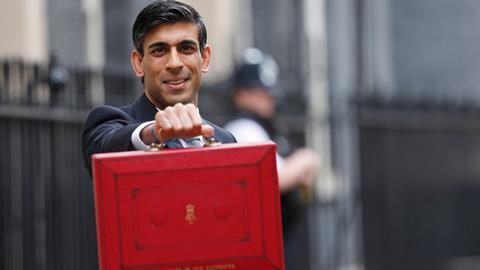Chancellor Rishi Sunak's first budget contained few surprises for the legal profession. As announced last weekend, the government will consult later this spring on a levy to fund new action on money laundering. The Treasury's Budget Report reveals that this will be paid by 'firms subject to the money laundering regulations - a definition which includes thousands of legal practices.
Meanwhile the government will allocate £14 million to Companies House 'to enable it to continue with vital capital projects to help its work tackling economic crime and anti-money laundering'.
In another well-trailed announcement - which did not make the budget speech - the chancellor announced more support for victims of crime and £5m to begin a trial of domestic abuse courts in England and Wales. The government will also create 'a new digital hub to make the criminal justice process in England and Wales easier to understand'.
Also in criminal justice, a 'Centre of Excellence for Tackling Youth Violence' will create a single evidence hub on what works to divert young people away from criminal activity.
The Royal Commission on the Criminal Justice process announced in the Queen's speech will receive £3 million to allow work 'to begin at pace over the next year'.
In other announcements:
- As part of what the chancellor called 'the biggest programme of public investment ever' the departmental capital budget for justice will rise from £500m this year to £700m in 2020-21; the resource budget from £7.8bn to £8.3bn.
- A 2% stamp duty land tax surcharge for non-UK residents will come in to force from April 2021.
- The government will legislate 'prospectively and retrospectively' in the 2020 Finance Bill 'to put beyond doubt that LLPs should be treated as general partnerships under income tax rules'.
- A second round of the regulators’ pioneer fund will provide £10m for regulators 'to unlock the potential of emerging technologies and help businesses to develop innovative products and services'.
- A Digital Identity Unit work on ways to help people to prove things about themselves without showing paper documents.
A new comprehensive spending review will conclude in July and will set out detailed spending plans for public services and investment, covering resource budgets for three years from 2021-22 to 2023-24 and capital budgets up to 2024-25.
































10 Readers' comments